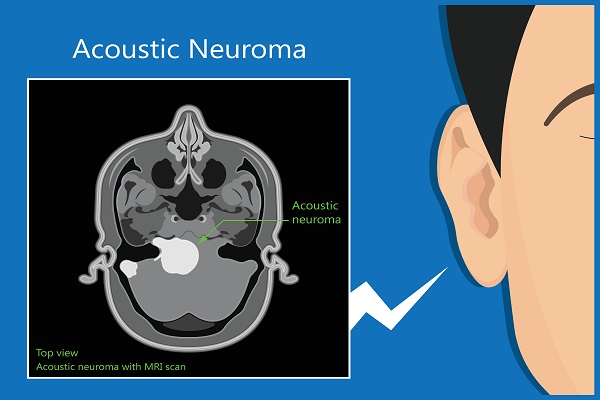What Is Acoustic Neuroma?

An acoustic neuroma is the short name for vestibular schwannoma. This brain condition is one that neurosurgeons tend to come across from time to time. While the term may sound familiar, not everyone knows exactly what it is. Continue reading to find out more.
A quick guide to an acoustic neuroma
Below is an overview of what an acoustic neuroma is, including how it is caused and how a neurosurgeon may treat it. Reviewing this information can be helpful for sufferers.
Definition and symptoms
An acoustic neuroma is a noncancerous tumor that tends to grow slowly in between the brain and the inner ear. This area is called the vestibular nerve, which is where the name vestibular schwannoma comes from.
As far as symptoms of an acoustic neuroma go, it is often actually difficult to even notice at first. Many individuals go years without realizing that they even have an acoustic neuroma. However, when symptoms do arise, they tend to look like the following:
- Hearing loss
- Tinnitus, ringing in the ears
- Dizziness and loss of balance
- Facial numbness or muscle spasms
Causes
The causes for acoustic neuroma vary, but generally speaking, most acoustic neuromas have no known causes. For the cases that do have apparent causes, neurosurgeons determine that it is a problem with a gene or chromosome 22. However, even most neurosurgeons and researchers do not know what causes the gene problem. Therefore, it is difficult to try and predict when an acoustic neuroma will arise.
Treatment
Treating an acoustic neuroma may include a number of things depending on the severity. The neurosurgeon may start out small with treatment and gradually increase when necessary depending on how the tumor grows. Most commonly, acoustic neuromas are treated with regular monitoring and testing. Neurosurgeons may also use radiotherapy or radiation to help reduce the size of the tumor. Additionally, surgical removal may be required if the tumor begins to grow out of control.
Other things to know
It is important to know that any type of brain condition can be scary to think or hear about; however, when it comes to acoustic neuromas, the majority of the time, neurosurgeons are able to just monitor them. Unlike other serious brain tumors, acoustic neuromas are noncancerous, which means there is little to no risk involved. Nonetheless, it is still necessary to regularly see a neurosurgeon for the appropriate monitoring to be done. Of course, because the tumor can grow, it is key to have the progression monitored.
Talk to a neurosurgeon
When suffering from an acoustic neuroma or other brain conditions, the best thing to do is consult with a neurosurgeon. An evaluation of the brain can be done to determine how severe the situation is. The patient can ask questions and go over anything concerns that may be outstanding. From there, any necessary work can be performed by the neurosurgeon. To find out more about acoustic neuromas or to get scheduled for a consultation appointment, reach out today.
Request an appointment here: https://arizonaneurosurgeon.com or call Randall Porter, M.D. at (602) 603-8951 for an appointment in our Phoenix office.
Check out what others are saying about our services on Yelp: Acoustic Neuroma in Phoenix, AZ.
Recent Posts
Spondylolisthesis occurs when one vertebra in the spine slips forward over the one below it, and understanding treatment helps patients make informed decisions about pain relief and mobility. This condition can cause mild to severe lower back pain, leg pain, stiffness, or even changes in posture and walking patterns. Understanding the full range of treatment…
Hemifacial spasm is a neurological condition that causes involuntary twitching or contractions on one side of the face. These spasms may begin near the eye and gradually affect surrounding muscles, including the cheek and mouth. While the condition is not typically life-threatening, it can significantly impact daily life and emotional well-being. Hemifacial spasm treatment focuses…
A herniated lumbar disc occurs when the soft center of a spinal disc pushes through a tear in the outer ring, often irritating nearby nerves. Early attention helps reduce pain and protect nerve function. Patients may experience sharp low back pain, radiating leg pain (sciatica), numbness, or weakness. A neurosurgeon evaluates symptoms, reviews imaging studies,…
Meningioma is a type of tumor that develops from the membranes covering the brain and spinal cord. While many meningiomas grow slowly and may not cause noticeable symptoms, some tumors can lead to significant health concerns. When you can recognize the signs early, you can get the treatment you need from a neurosurgeon, giving you…


